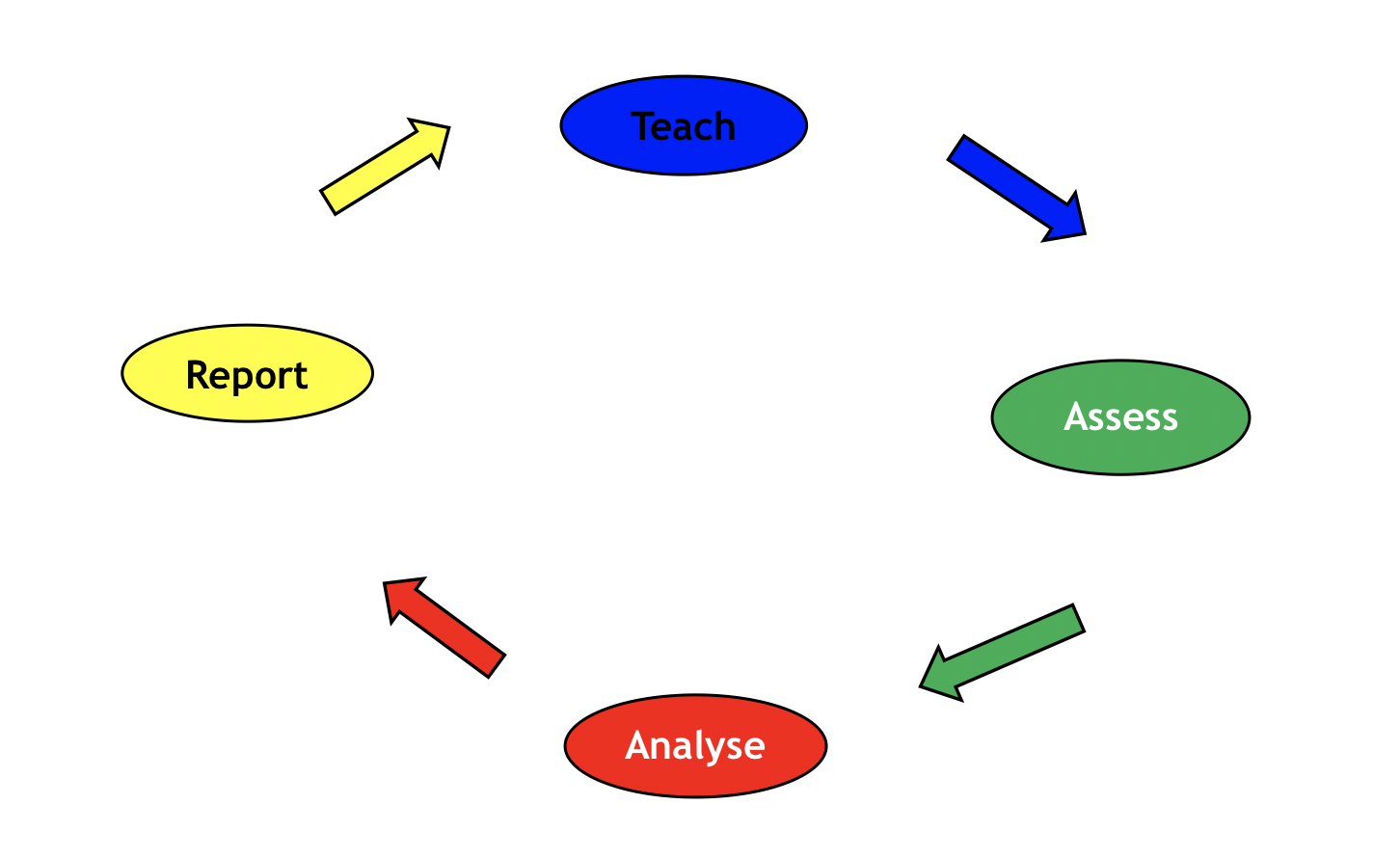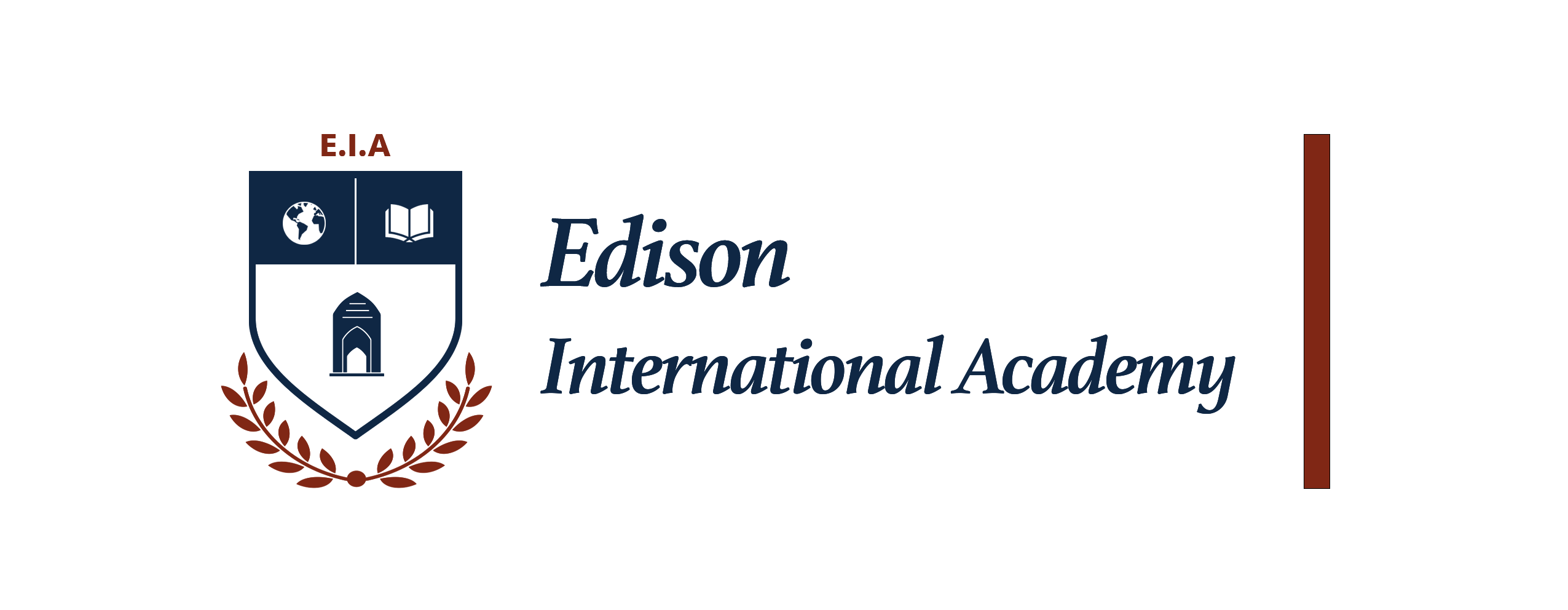Assessment Policy
A04: ASSESSMENT POLICY
You can teach a student a lesson for a day; but if you can teach him to learn by creating curiosity, he will continue the learning process as long as he lives.
Clay P. Bedford
1. Rationale
At Edison International Academy, we believe that assessment provides the basis for informed teaching, helping pupils to overcome difficulties and ensuring that teaching builds upon what has been learned. It is also the means by which pupils understand what they have achieved and what they need to work on.
Formative assessment creates a positive learning environment where children can see the steps necessary for their own success. It enables teachers to set appropriate work at the level necessary for the children’s continuing progress.
Summative assessment is important for accurate information regarding a child’s attainment and progress. It informs whole school target setting and prediction of a cohort’s future attainment.
2. Aims and objectives
The aims and objectives of this policy are:
- To raise the standards of achievement throughout the school
- To maintain accurate records of the progress and attainment of individual children and cohorts
- To ensure consistency in assessing achievement and identifying achievable and challenging targets for each child
- To enable the active involvement of pupils in their own learning
- To enable teachers and other professionals to use assessment judgements to plan work that accurately reflects the needs of individual pupils
- To provide regular information for parents that enables them to support their child’s learning
- To provide the information that allows school leaders and stakeholders to make judgements about the effectiveness of the school and to evaluate the school’s performance against its own previous attainment over time and against national standards
3. Assessment Cycle:

4. Types of assessment:
At Edison International Academy, we use a combination of formative and summative assessment as outlined below:
Formative Assessment (Assessment for Learning – AFL)
Formative assessment is a powerful way of raising pupils’ achievement. It is based on the principle that pupils will improve most if they understand the aim of their learning, where they are in relation to this aim and how they can achieve the aim.
Formative assessments are used to:
- identify children’s strengths and gaps in their skills/knowledge
- identify next steps for learning
- inform future planning
- enable appropriate strategies to be employed
- facilitate the setting of appropriate targets for the class, group, and individual
- track the child’s rate of progress
- facilitate an evaluation of the effectiveness of teaching and learning
- inform future teaching and learning strategies
- identify individuals and groups for specific intervention support
Summative Assessment – Assessment of Learning
- Summative assessment (Assessment of Learning) is important for informing both parents and teachers of a child’s attainment and progress. This will also inform whole school target setting and prediction of a cohort’s future attainment
- Summative assessments:
- identify attainment through one-off standardised tests at any given point in time
- record performance in a specific area on a specific date
- provide age-standardised information
- provide end of key stage test data against which the school will be judged
- ensure statutory assessments at the end of EYFS, KS1, KS3 and KS4 are met
- provide information about cohort areas of strength and weakness to build from in the future
Summative Assessment Outline – Goalposts:
4. Planning for assessment
- The Early Learning Goals and National Curriculum Programmes of Study are used to guide our teaching. These documents provide us with the framework to ensure breadth and balance in our curriculum and provide the markers to assess both formative and summative approaches.
- Lessons are planned with clear learning objectives, based on the teacher’s detailed knowledge of each child. We strive to ensure all tasks set are appropriate to each child’s level of ability. The format of our lesson plans ensures that our lessons are planned in detail, taking into account the needs of all pupils. Teachers use focused marking, questioning and observations to assess children’s progress in relation to the planned learning objectives and set next steps to show where the child is in relation to this aim and how they can achieve the aim. Teachers use this information when planning for subsequent lessons.
5. Assessment and Reporting in the Foundation Stage
Continuous assessment of students’ achievement of the Learning goals across the seven Learning areas from the Early Years Framework occurs over the academic year. This is assessed through the use of Long observations, Short Observations, focus activities, and questioning. The information is recorded in individual student portfolios to give show progress, acquisition and achievement of the Learning goals, as stated in the Early Years Learning Outcomes document.
At the end of each term, information gathered will be recorded in a Term Report for each EYFS student and shared with parents. The information will state if the student is assessed against the early learning goals and recorded at ‘emerging’, an ‘expected’, or ‘exceeding’ level. This will also be noted for Arabic and Islamic Studies.
All assessment information is filed in Individual Student Profiles to ensure there is comprehensive documentation of the student’s progress over their EYFS years.
6. Assessment and Recording in Key Stage 1 and 2
Teachers use assessment for learning (AfL) to provide on-going assessment, through the use of focused marking and/or observations of children’s work against learning objectives and success criteria. This information is then used to assess progress towards meeting learning targets and to identify and set next step targets for each child.
Continuous assessment using end of topic tests, projects (with accompanying Rubrics), and short tests are used to provide ongoing information on achievement of curriculum Learning objectives across each term. The results of these will be used to provide information and grades when reporting to parents. Parent will receive reports each term giving information on students’ progress and grades.
Diagnostic and Baseline information needs to be collected at the beginning of the academic year in English, Maths and Arabic. This will be used to set targets for individual students, to inform teacher planning of the class programme, and to provide data for analysis of baseline student performance. At the completion of the Academic year, all students will be tested with similar tests to provide data to be used for analysis of individual student achievement and progress, class progress and achievement and comparative data analysis across the years.
7. Assessment and Recording in Key Stage 3 and 4
Assessment is on-going throughout the year, including Assessment for, and of, Learning, and there are formal assessments at the end of each term.
8. Setting Tests for Assessment Purposes
- Diagnostic tests, topic tests and other short tests need to be send to Manager in charge of the Year group to be checked and approved to ensure that they will give a true indication of the Learning objectives being assessed as being achieved or not.
- As marks go towards the grades that will indicate if a student will pass or fail, the marking of tests need to be moderated across the year groups.
- A file for each year level containing all tests given for grading purposes should be kept by Management.
9. Marking Policy
- All students will receive regular verbal and written feedback on their work. Marking should be diagnostic and meaningful.
- Marking should regularly include next steps/targets for students to work towards.
- All branches of Edison Schools and Green Park School should use the same marking procedure when they are doing the standardised tests across schools. These need to be moderated to ensure consistency.
- Each school will have its own marking procedure that outlines the expectations and guidelines on regularity of marking, and the method of to be used marking at the EYFS, Primary and Secondary level. This will sit alongside this Edison assessment policy.
10. Assessment Records
- Teachers will keep records of assessment results, observations and target acquisition of every student within their class.
- Each student will have an individual portfolio which contains assessment information and work samples. These will be cumulative over their school years – EYFS, Primary and Secondary – and will be passed on to consecutive teachers. This is to ensure that each student is progressing, and if they are not, a way forward to find out why can be found.
Appendix 1: Examples of Assessment materials, tools and tests
|
Reading |
|
|
Writing |
|
|
Maths |
|
Appendix 2: Examples of Contents of Class Assessment Folder/Individual Student Portfolios
|
Autumn Term |
English
Maths
Foundation Subjects
|
|
Spring Term |
English
Maths
Foundation Subjects
|
|
English
Maths
Foundation Subjects
|
Admission Process
We welcome applications for the upcoming school semester.
We invite parents to visit the admission page and become acquainted with the process and send an application
Join Us
See our admissions process
Term Dates
View our upcoming term dates here
Parent Portal Login
Keep up to date with Aspire
